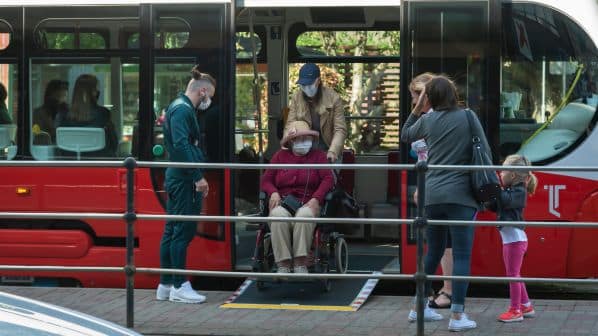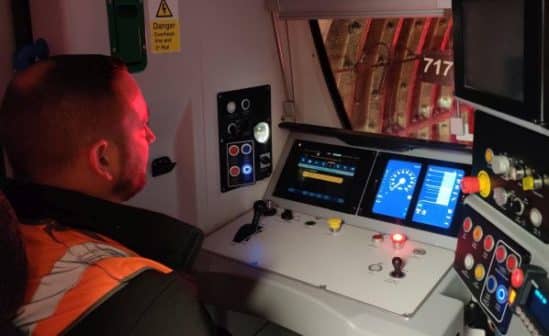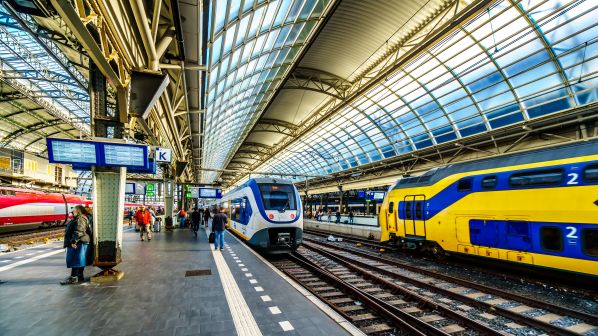NEW rules introduced by the European Union (EU) to offer improved protection for rail passengers during disruption and to ensure operators provide a trouble-free travel experience for passengers with reduced mobility came into effect on June 7.
Operators are also now obliged to share real-time traffic and travel data, paving the way for more competitive ticket offers.
Under the new rules, if a passenger has not been offered a solution within 100 minutes of a disruption to allow their journey to continue, they will have a new right to self-rerouting, allowing them to organise alternative travel by rail or bus, the cost of which can be reimbursed by the operator for the “necessary, appropriate and reasonable” cost of the additional ticket.
Railways qualifying as a “sole undertaking” now have to offer through-tickets, meaning that passengers have more rights if they miss a connection, including the right to ticket reimbursement or compensation, to accommodation when a journey cannot continue the same day, and to refreshments.
Infrastructure managers and operators will have to provide real-time dynamic traffic and travel information, including to third party ticket vendors and tour operators. By increasing access to reservation systems, the new rules aim to encourage vendors and operators to prepare more innovative offers, such as bundled tickets covering different carriers, and a combination of connections not offered until now.
The new framework includes several new provisions to make rail more practical for persons with disabilities or reduced mobility. Operators, ticket vendors or tour operators may not require these passengers to be accompanied by another person, unless this is strictly necessary in order to comply with established access rules. If this is the case, the accompanying person is entitled to travel free of charge and to be seated close to the person they are assisting.
The pre-notification period for assistance requests has also been reduced to 24 hours, significantly shorter than the 36 hours required for bus and coach travel, and 48 hours for travel by the air and waterborne sectors. While member states can decide to postpone the application of this rule until June 30 2026 at the latest, and up to a maximum of 36 hours, they can do so only in justified cases.
The new framework also strengthens complaint handling mechanisms and reinforces the obligation for national authorities to cooperate in this regard. In the future, a new EU-wide standardised compensation and reimbursement form will be developed.
To establish a level playing field with the other transport modes, the regulation also clarifies that operators do not have to pay compensation for delays or cancellation caused by “force majeure,” events such as extreme weather, pandemics and terrorist attacks.
The provision would apply only if the carrier could neither prevent nor avoid, irrespective of the due care taken, the consequences of these events. A strike by staff does not qualify as an extraordinary circumstance. The force majeure clause would only release the operator from the payment of compensation for delays or cancellations, not from other obligations. This means that even when force majeure applies, the operator will still need to reimburse the cost of the ticket or to re-route the passenger to another service, and to provide assistance.
The new rules also ensure dedicated places for bicycle storage, making it a mandatory requirement for all new trains ordered after June 7 2025, as well as for trains undergoing major upgrades from this date. The new legislation also sets rules on the establishment of plans by operators and national authorities on how to increase and improve the transport of bicycles, and on other solutions encouraging combined use of railways and bicycles.
“This new set of passenger rights is a key step on our way to better connecting people across Europe, and in a sustainable way,” says commissioner for mobility and transport, Ms Adina Vălean. “We need strong and modern rail passenger rights to attract more people to rail and contribute to our climate goals. The new rules will improve protection for rail passengers faced with delays, cancellations and missed connections. They also respond better to the needs of persons with disabilities or reduced mobility.”
The Community of European Railway and Infrastructure Companies (CER) welcomed the implementation of the regulation, which it says poses a challenge for the entire EU rail network but also introduces a higher level of customer protection while ensuring the continued operation of rail services.
CER says that since the entry into force of the original Rail Passenger Rights Regulation in 2009, the sector has taken the implementation of the regulation very seriously by investing significant resources to effectively meet the requirements.
“The paramount objective of the rail sector has always been to ensure the protection of its customers,” says CER executive director, Mr Alberto Mazzola. “Amidst growing intermodal competition, today rail passengers benefit from superior safeguards compared with other modes of transport. The industry has dedicated a lot of resources to implement the new EU requirements and meet the highest possible standards, so as to further improve the attractiveness and competitiveness of the sector.”




